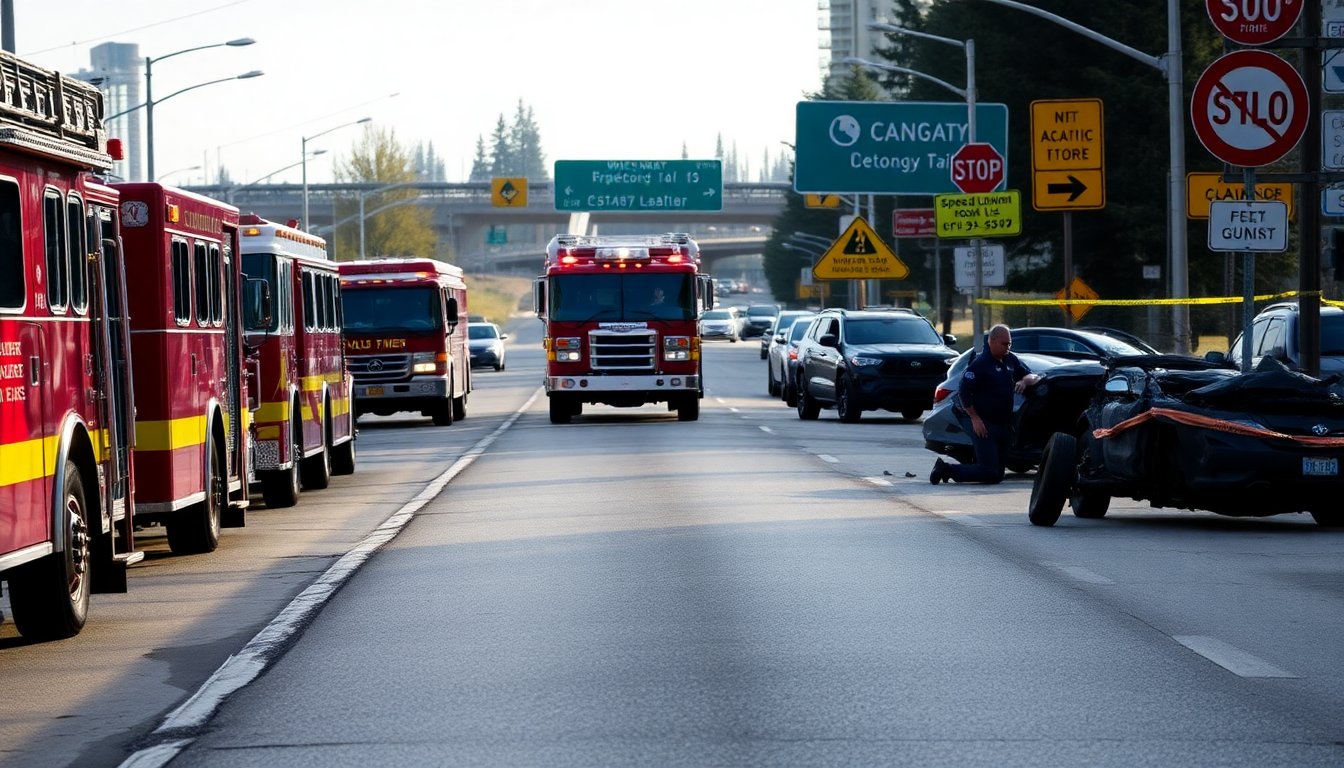Table of Contents
In response to several fatal collisions on Stoney Trail, the Calgary Firefighters Association (CFA) has called for the provincial government to impose stricter penalties for reckless driving. The CFA, representing Calgary’s firefighters, has labeled this road section a danger zone for both motorists and first responders.
Jamie Blayney, president of the CFA, highlighted the emotional toll these incidents take on emergency personnel, stating, “These are scenes we don’t want to respond to. They linger with us.” This reflects the lasting impact of traumatic events on those who provide aid after such accidents.
Rising concerns about speeding enforcement
Statistics indicate a disturbing trend: since September, local law enforcement has issued 618 citations for driving over 50 km/h above the speed limit, with a significant number occurring on Stoney Trail. Last year, similar infractions totaled 704. Despite the seriousness of these violations, Alberta mandates only a court appearance for drivers exceeding the speed limit by more than 51 km/h, allowing them to continue driving until their court date.
To address this ongoing issue, the CFA is advocating for legislative changes that would enable law enforcement to immediately impound vehicles and suspend licenses for excessive speeding. Notably, Alberta is the only province in Canada without such measures.
The need for immediate action
“It’s time to implement the necessary tools to curb the rampant speeding on Stoney Trail,” Blayney emphasized. To strengthen their message, the CFA has partnered with four independent city council candidates, all representing wards that include parts of Stoney Trail.
Jennifer Wyness, the incumbent candidate for Ward 2, noted that speeding has increased since the province ended photo radar enforcement on city streets. “Each time this topic arises, more Calgarians recognize that photo radar was not just a financial tool; it played a crucial role in saving lives,” she stated during a joint press conference.
Voices of concern from city council candidates
Andrew Yule, an independent candidate from Ward 3, reported that the sounds of speeding vehicles have become a common concern among residents. “Many families worry about the dangers posed by speeding cars, especially as I have teenage children learning to drive. It’s frightening to think about them navigating Stoney Trail amidst this reckless behavior,” he remarked.
Harrison Clark, a candidate for Ward 9, echoed these concerns, stating that residents near Stoney Trail on 17 Avenue S.E. have voiced their frustrations. “There are two conflicting priorities at play here: those speeding like it’s an autobahn and others simply trying to reach their local grocery store,” he explained, illustrating the everyday challenges faced by community members.
A unified front for safety
John Pantazopoulos, running as an independent in Ward 6, noted that the issue of excessive speeding has become a unifying concern among candidates, despite their different platforms. “This is an issue that the next council can rally around for the benefit of Calgary residents,” he stated. “The fact that we’re all coming together as independent representatives demonstrates what Calgarians desire from their future leaders.”
Government response and future considerations
In a recent interview, Alberta’s Transportation Minister Devin Dreeshen acknowledged the importance of addressing these issues. He noted that it is encouraging to hear candidates emphasize the need for more police presence rather than relying solely on automated enforcement. “We are constantly reviewing the Traffic Safety Act to assess whether adjustments to penalties are necessary,” he stated, indicating a willingness to consider reforms.
Jamie Blayney, president of the CFA, highlighted the emotional toll these incidents take on emergency personnel, stating, “These are scenes we don’t want to respond to. They linger with us.” This reflects the lasting impact of traumatic events on those who provide aid after such accidents.0
Jamie Blayney, president of the CFA, highlighted the emotional toll these incidents take on emergency personnel, stating, “These are scenes we don’t want to respond to. They linger with us.” This reflects the lasting impact of traumatic events on those who provide aid after such accidents.1


